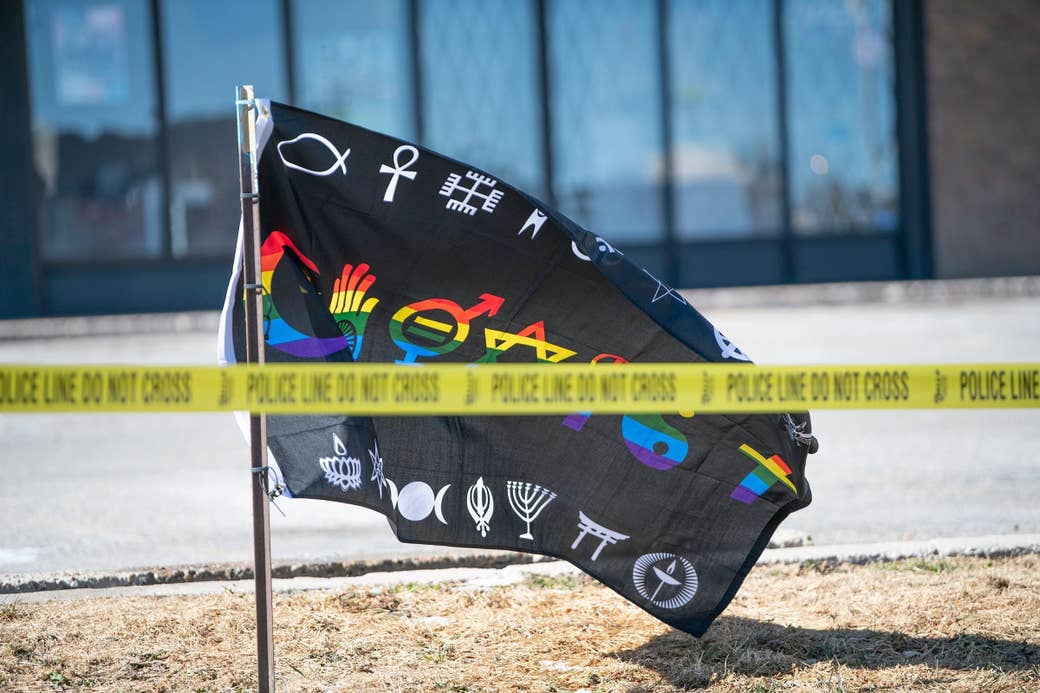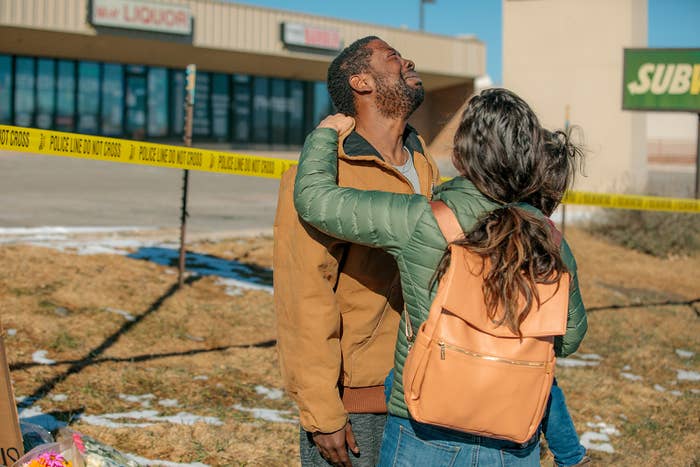
Another weekend passed in America with yet another mass shooting, this time at a gay bar in Colorado Springs.
In an attack that lasted barely more than a minute, five people were killed and at least 18 others injured when a gunman stormed Club Q, a bar that had functioned as a rainbow safe haven for the conservative town’s small LGBTQ community.
Were it not for the heroism of patrons who confronted the shooter and subdued him with one of his own weapons, many more might be among the dead. That inconceivable act of bravery is worth unending celebration.
But for LGBTQ people across the country, the most devastating part of this slaughter was its sense of inevitability. All year long, it has felt like we have been inching toward some form of fated tragedy, like a car crash in slow motion. Now the horror has manifested.
For some time now, a resurgent right-wing strategy of portraying queer people as an invasive species of predators — who “groom” children in classrooms, “mutilate” the bodies of transgender children, or otherwise corrupt young minds — has burrowed into mainstream political discourse with horrifying efficiency. “Don’t Say Gay,” the edict goes, or else it will spread like a virus.
The result has been an alarming and clear escalation in attacks and demonstrations against LGBTQ people. Armed militia members have presented themselves at Pride events and gay bars and local libraries across the country. Trolls have launched coordinated attacks on anti-suicide support services for young queer people. Bomb threats have been called into children’s hospitals that provide care to transgender children.
As the rhetoric has become more contentious, a sense of foreboding has grown — the feeling that the very worst in society was poised to pounce.
“There are folks out there who are primed to answer what they see as social questions with violence,” Cathryn Oakley, state legislative director for the Human Rights Campaign, told me in June. “And to feed those folks the kind of rhetoric that politicians fed them this year is giving them a license to behave in exactly the way they want to, which is with violence, with anger, with disrespect.”
And yet, if you were hoping the bloodshed might prompt something of a reckoning in these circles, you are, of course, mistaken.
Consider the sheer callousness and inhumanity of Chaya Raichik, the Brooklyn real estate agent behind @LibsOfTikTok, who just hours after the attack unfolded began directing her ire — and that of her 1.5 million Twitter followers — at other drag performers in Colorado.
Elsewhere, Colorado Republican Rep. Lauren Boebert offered platitudes but zero acknowledgment of how her own rhetoric had repeatedly cast LGBTQ people as dangerous.
Other usual far-right chuds like Matt Walsh and Candace Owens distanced themselves from the killings, but still sought to steer the conversation back to more comfortable framing: the threat we pose to children. It’s liberals, they argued, who are politicizing the tragedy.
Do not politicize this tragedy? The tragedy is that you made our very existence political. And if you want to own our lives, you must own our deaths too.
Those deaths — on the eve of Transgender Day of Remembrance, no less — include Kelly Loving, a 40-year-old trans woman visiting from Denver; Ashley Paugh, 35, who leaves behind a daughter and a husband who was her high school sweetheart; Raymond Green Vance, 22, a local straight man who had just received his first paycheck from his new job at a FedEx distribution center; and Club Q bartenders Derrick Rump, 38, and Daniel Davis Aston, a 28-year-old trans man.
“Every time. Every single goddamn time I even have the slightest thought of leaving Club Q, someone comes up and tells me, ‘You’re the reason I love this bar’ or ‘You and Derrick make me feel so safe and welcome here,’” Aston had tweeted just this year.

Safe spaces have become a favorite target for mockery among sections of the right who would prefer they be eliminated in the name of subjugation. But they have never had to worry about suspicious stares when they enter a venue, have never had to hesitate when holding their partner’s hand, have never had to question their place in a society that defers to them.
In a country that is again making LGBTQ people into enemies and “others,” spaces where we can unclench and find peace among our own community matter more than ever.
That’s why the attack feels particularly monstrous — as if to say we’ll never be safe, not even here.
I find myself replaying the words of one of the survivors, Joshua Thurman, who recounted through tears how he barricaded himself inside a dressing room with others and listened to the bullets ring out. “This was our only safe space here in the Springs,” Thurman told local station KRDO-TV. “For this to get shot up, what are we going to do now? Where are we gonna go?”
For the LGBTQ people of Colorado Springs, there are no easy answers to those questions as they grieve and rebuild.
But for the rest of us, there can only be one defiant response to this tragedy and the onslaught of other attacks that preceded it: We’re going nowhere. ●
